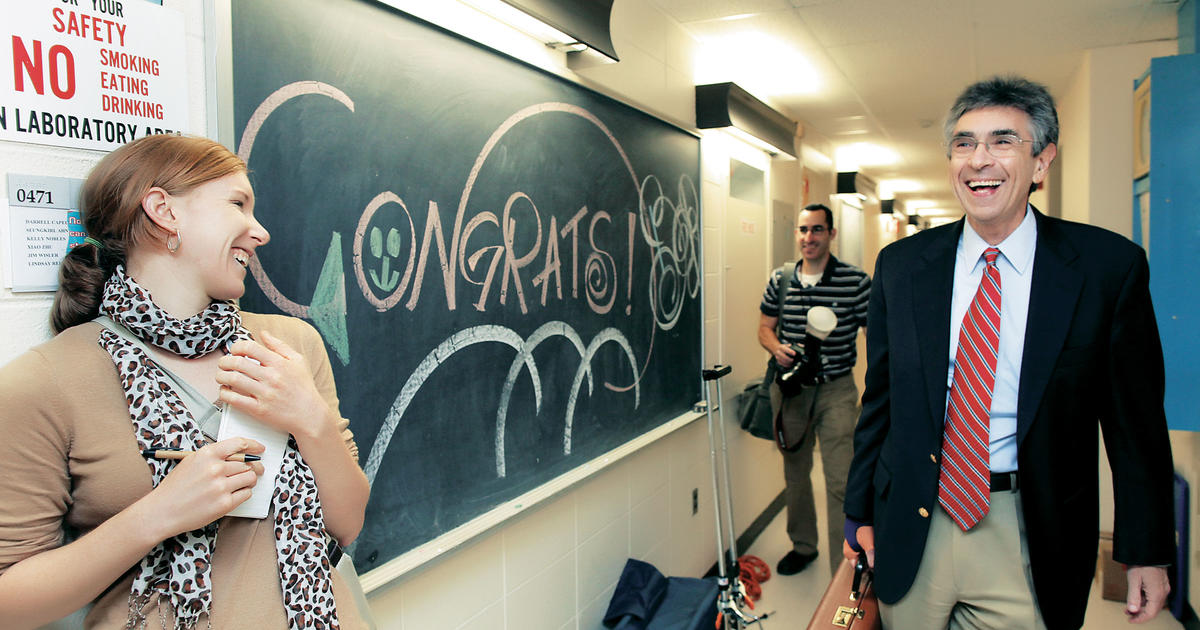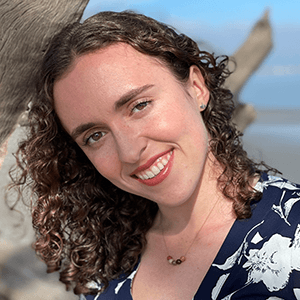Nobel Prize Winner Dr. Robert Lefkowitz on his keys to success
Dr. Robert Lefkowitz shares his journey to the Nobel Prize with the Huang Fellows
Albert Einstein, Marie Curie, Martin Luther King Jr., Mother Teresa, Robert Lefkowitz… What each of these influential leaders shares is a contribution to society which merited the award of one of the highest honors imaginable in any field: the Nobel Prize.
Along with 19 eager Huang Fellows like me, entering their second year at Duke and searching to find an impact on society through science, I was granted the opportunity to meet the last person on this list, Dr. Robert Lefkowitz. Dr. Lefkowitz holds multiple titles at Duke, including Professor of Medicine, Biochemistry, Pathology, and Chemistry and Associate for the Duke Initiative for Science & Society, but his favorite is number 1 on the Duke Blue Devils basketball team (a role he begrudgingly shares with President Obama).
Dr. Lefkowitz was awarded the Nobel Prize in Chemistry in 2012 for his groundbreaking work discovering the mechanisms of G-protein-coupled receptors, which have become the single largest family of drug targets and led to the invention of approximately a third of all FDA-approved drugs.
Not only did we get to meet this science icon, but better yet he shared words of wisdom with us he entitled his “keys to success in science.” So if you intend to pursue a career in this field, read carefully.
Robert Lefkowitz explained that it all begins with choosing a project or area in which to devote a significant amount of your energy. “There are four keys to success in research: the first is focus, the second is focus, the third is focus, and the fourth you have to figure out for yourself.” Lefkowitz described his focus as being “driven by curiosity and a desire to understand how molecules interact with cells.”
Next, you must “build your career around scientific problems that interest you, not around techniques.” Lefkowitz has seen the techniques used in his field change drastically throughout the course of his career, often by his own doing. This kind of out-of-the-box thinking demands creativity, and Dr. Lefkowitz advised the best place to find it is in humor.
“Try to see humor in everyday situations… Both humor and scientific curiosity involve looking at a situation and seeing relationships that other people might not see.”
In this way, Lefkowitz explained that he sees his work as “play.” He urges scientists to “be enthusiastic about what you are doing. If you are not, find something else to do.” After over 50 years of research, it is clear that Dr. Lefkowitz loves his job.
However, the road to discovering this path was not a simple one. In fact, his first research experience was through a compulsory draft into what many derogatorily called the “yellow berets,” a research service program for the NIH during the Vietnam War. In this program, Dr. Lefkowitz explained he experienced real “prolonged failure” for the first time in his life. He was certain afterward that he neither had the talent nor the passion for research.
Yet, he soon found himself missing the challenge of “grappling with a problem.” Dr. Lefkowitz explained that “important problems take longer to answer” and that scientists must be “doggedly persistent” in their quest to answering them. One of the most important parts of this trait is conducting many experiments and not “[talking] yourself out of experiments too easily.” Dr. Lefkowitz encourages researchers to “be bold, take risks, and don’t be afraid to fail.”
Lefkowitz described this strategy as a mix between optimism and ambition. He explained each time he approaches a problem he does not begin with a question of whether his team will succeed but rather how long it will take to get there, adding that it takes someone “a bit obsessive and stubborn” to get there first.
Getting there doesn’t just mean finding that all-important significant difference or knowing more about a subject than everyone else in the room. Lefkowitz explained it is also about learning how to “tell a good story.” Science can make no impact on society without communication to fellow academics, politicians, and the public.
If you’re still reading, congratulations! You’ve earned the privilege of learning the most important lesson yet: Eat two squares of dark chocolate consisting of 70% cocoa every single night. In our meeting, Dr. Lefkowitz shared data supporting a correlation between chocolate consumption and the number of Nobel Laureates in each country. .
This isn’t just some wild coincidence; Dr. Lefkowitz explained he has experienced the power of chocolate firsthand.
In a strike of genius, Lefkowitz decided one night that he felt he deserved to increase his weekly chocolate intake from a couple nights a week to every day. Just 2 months later, Dr. Lefkowitz was awarded the Nobel Prize. Lefkowitz is confident that a commitment to his chocolate regime (and perhaps also following the advice contained in this reflection) will have you reaching peak success in a year or two at most. Feeling like you might need a little more advice before that peak success is attainable? Then I suggest you read Dr. Lefkowitz’s memoir: A Funny Thing Happened on the Way to Stockholm to learn more about this science legend and his contributions to society.
Sophia Leeman, Huang Fellow ’24
 Sophia is a first-year Pratt Student from Charlotte, NC intending to major in Biomedical Engineering.
Sophia is a first-year Pratt Student from Charlotte, NC intending to major in Biomedical Engineering.

